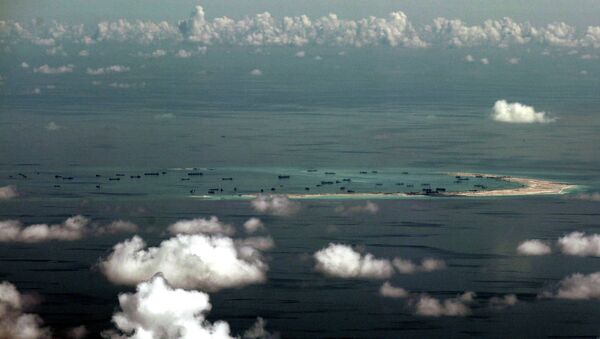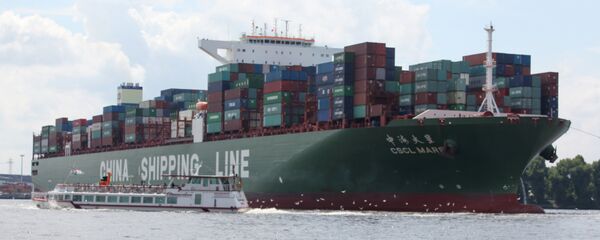WASHINGTON (Sputnik) — The US and ASEAN countries held a summit on Tuesday, in which the group agreed with the US on the need to come up with concrete steps to stabilize the situation in the South China Sea. The summit was held amid lingering tensions in the disputed South China Sea, which recently escalated over Beijing's construction of the man-made islands.
"The disclosure of the missiles by the Pentagon comes a day after President [Barack] Obama had a summit meeting trying shore up support from ASEAN [Association of Southeast Asian nations] countries," Independent Institute Center on Peace and Liberty Director Ivan Eland told Sputnik.
After meeting with Obama on Wednesday at the Sunnylands retreat in California, the ASEAN leaders refused to agree to any reference to China in a joint communique with Obama.
"Nothing circles the wagons like the emphasis on an external threat," Eland noted.
Eland also linked the announcement to US to plans to put Theater High Altitude Air Defense, or THAAD, missile defense systems into South Korea, in the face of Beijing’s objections.
"The Pentagon's disclosure of Chinese air and missile defenses being placed on islands that China has had for quite some time may be an attempt to justify US missile defenses being placed in South Korea," he said.
Eland suggested the US government could defuse the issue by pulling its powerful m naval and air presence out of the South China Sea.
"The United States should stay out of local disputes in the South China Sea, and should gradually withdraw its military presence from South Korea, thus making such issues moot," he advised.
Military affairs analyst and retired US Army Major Todd Pierce maintained that Obama’s determination to keep a high profile naval force in the South China Sea was rooted in US efforts to assert domination over the entire Pacific Ocean going back nearly 120 years.
"It follows all of our declarations of hostility toward China in this century, such as the Asian pivot [and] the collusion with Japanese Prime Minister [Shinzo] Abe to subvert the Japanese Constitution to permit the deployment of the Japanese military in support of the United States, Pierce maintained.
From the time of the Spanish-American War in 1898 the American public had looked upon the Pacific Ocean as a region where their country was dominant by right, the analyst continued.
"Each of our 20th Century wars only reinforced that notion as government policy to today when we accept it as a fait accompli. But China obviously doesn’t," Pierce cautioned.
This attitude remained engrained among US policymakers, Piperce added, and was reflected in the network of major US bases around the western Pacific.
"We have acted as if the Pacific was our sea in maintaining Guam, Okinawa, and our many other outposts. We have also taken all the necessary steps to go to war over that claim, notwithstanding any legitimate concerns China may have."
The forward deployment of the US Navy close to China’s coastline was a logical extension of this attitude, Pierce concluded.
Todd Pierce is a retired US Army major and former lawyer for the US Judge Advocate general (JAG). Pierce is a historian as well as US constitutional law and military expert.
Ivan Eland is Senior Fellow and Director of the Center on Peace and Liberty at the Independent Institute. He spent 15 years working for Congress on national security issues, including stints as an investigator for the House or Representatives Foreign Affairs Committee and Principal Defense Analyst at the Congressional Budget Office. Eland has also served as Evaluator-in-Charge on national security and intelligence for the US General Accounting Office (now the Government Accountability Office).


